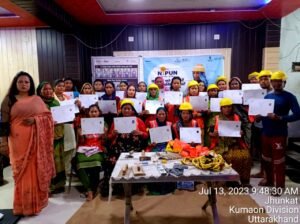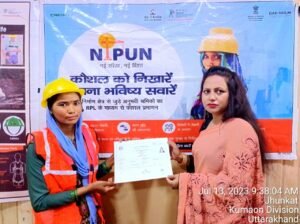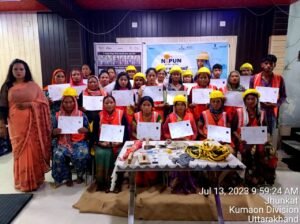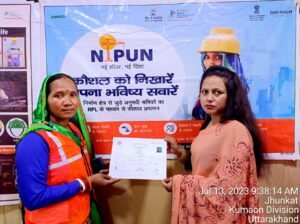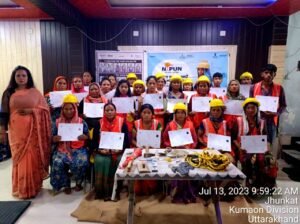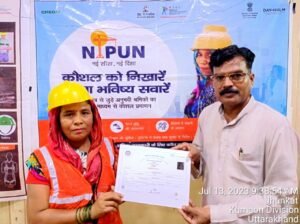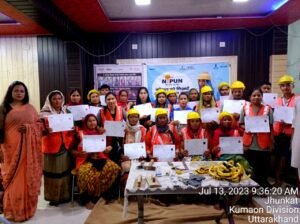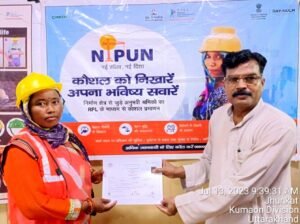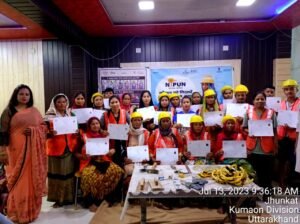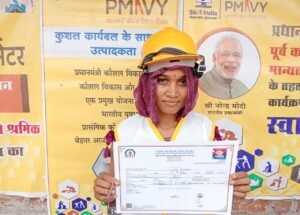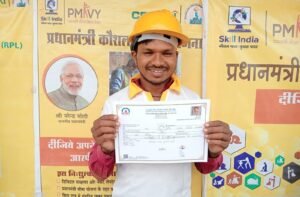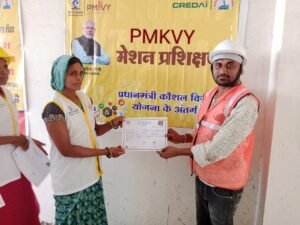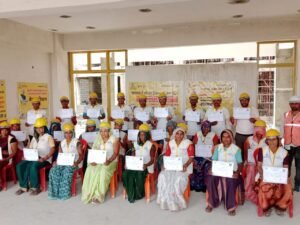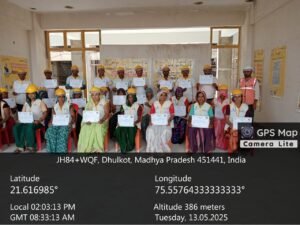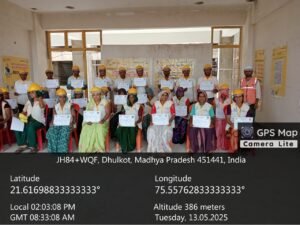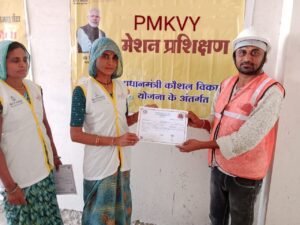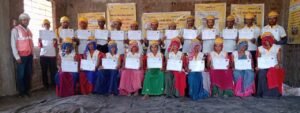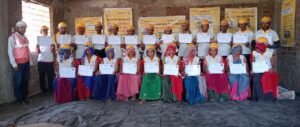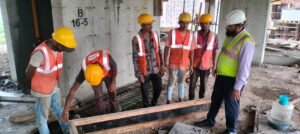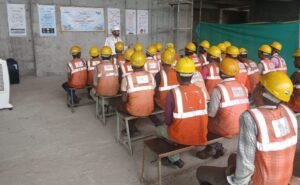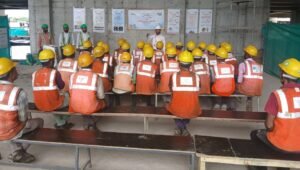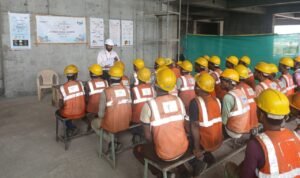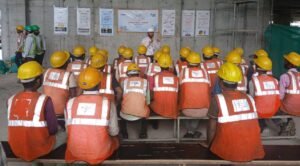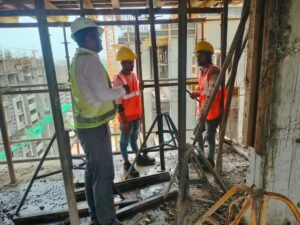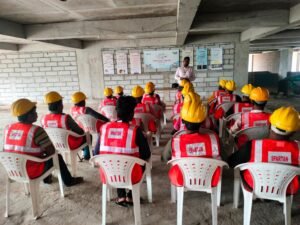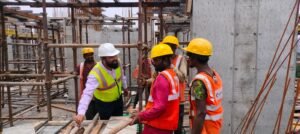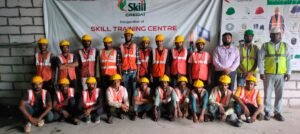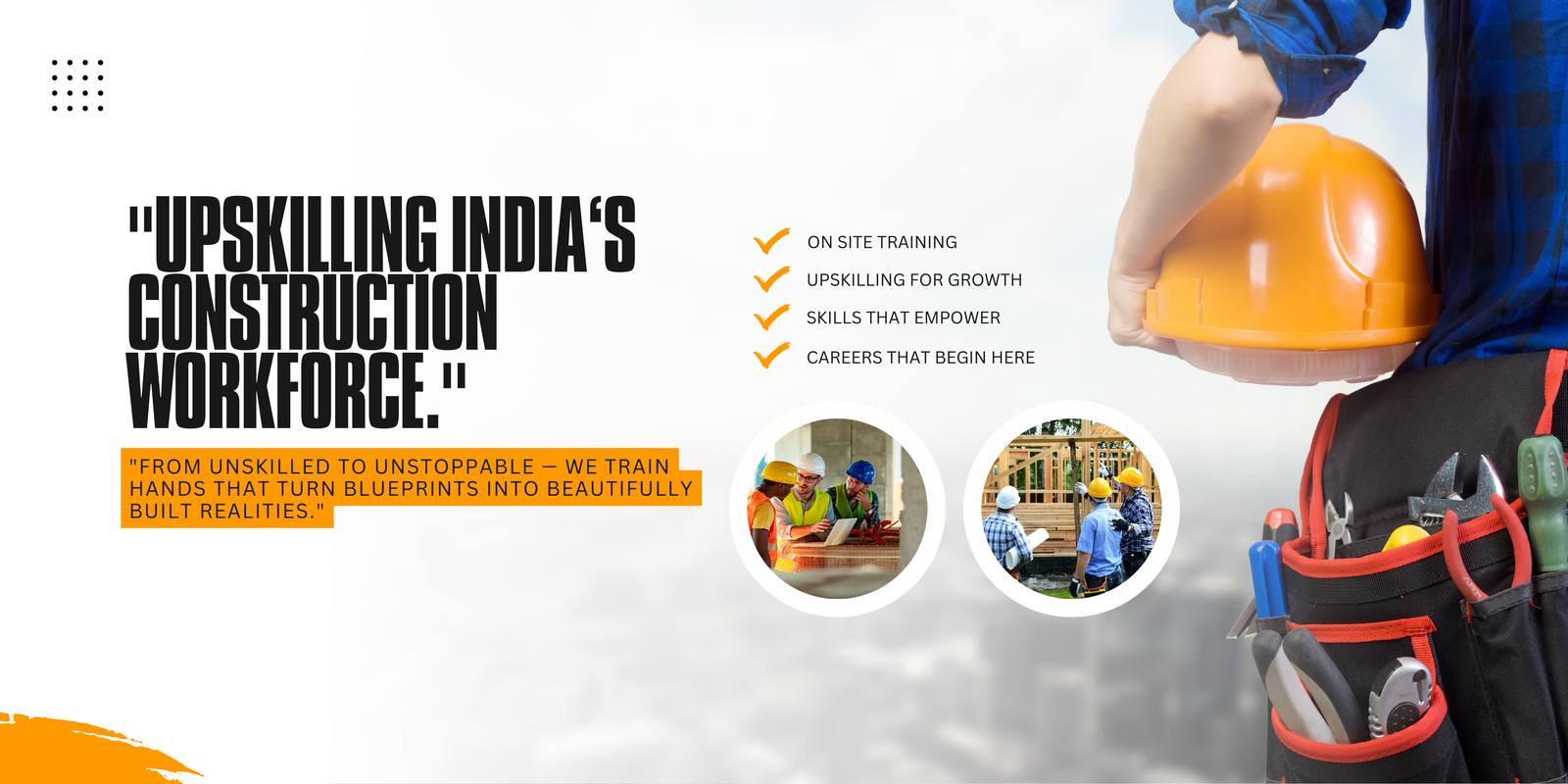
Special Initiative:
NIPUN
The Ministry of Housing and Urban Affairs has launched on June 20, 2022 an innovative project – NIPUN (National Initiative for Promotion of Upskilling of Nirman workers), as part of Deendayal Antyodaya Yojana – National Urban Livelihoods Mission (DAY-NULM).
NIPUN, inter-alia, includes on-site Recognition of Prior Learning (RPL) of construction workers, and fresh skill training in job oriented courses in the construction and related sectors.
This project aims to skill train over one lakh construction workers in the National Skills Qualifications Framework (NSQF) aligned courses, through a network of industry partners in construction sector and the related Sector Skill Councils (SSCs) i.e. Construction Skill Development Council of India (CSDCI), Water Management & Plumbing Skill Council (WMPSC) and Infrastructure and Equipment Sector skill Council (IESC).
National Skill Development Corporation (NSDC) has been engaged as the implementation agency.
Under RPL, certified candidates are extended benefits of the ‘Kaushal Bima’ i.e. three-years accidental insurance with coverage of ₹ 2 lakh. Further, training partners facilitate registration of eligible trainees under the Employees Provident Fund (EPF) and Building and other Construction Workers (BoCW).
The project, which is of 1 year duration, is estimated to cost ₹ 93 crore. The project is being implemented on Pan-India basis at construction sites, identified in collaboration with Training Partners.
PMKVY 4.0
Pradhan Mantri Kaushal Vikas Yojana (PMKVY) 4.0 is the fourth and most advanced phase (2022–2026) of the Government of India’s flagship skill development scheme under the Skill India Mission, designed to equip the nation’s youth with industry-relevant, future-ready skills. Spearheaded by the Ministry of Skill Development and Entrepreneurship (MSDE) and implemented through the National Skill Development Corporation (NSDC), the scheme operates via a robust digital ecosystem called the Skill India Digital Hub (SIDH). PMKVY 4.0 builds upon the learnings of its previous phases and introduces a sharper focus on short-term training (STT) for fresh entrants, Recognition of Prior Learning (RPL) for certifying existing skills, and Special Projects aimed at skilling marginalized communities, including women, persons with disabilities (PwDs), school dropouts, and youth from aspirational districts. A key innovation of PMKVY 4.0 is its blended learning approach that combines theoretical classroom sessions with On-the-Job Training (OJT) at real workplace sites, ensuring that participants are not only trained but also job-ready. The scheme embraces digitalization and demand-responsiveness by offering training in both traditional sectors (such as construction, retail, and healthcare) and emerging technologies like Artificial Intelligence, Robotics, IoT, Drone Technology, 3D Printing, and Coding, thereby aligning workforce skills with the needs of a rapidly evolving global economy. With an allocated budget of over ₹2,600 crore, PMKVY 4.0 targets the certification and placement of millions of youth through a wide network of accredited training centers and industry partners across the country. It promotes inclusivity, employability, and entrepreneurship, especially within India’s growing gig, service, and digital economy.
MSSDS
The Naka Workers Scheme, implemented by the Maharashtra State Skill Development Society (MSSDS) in collaboration with the Maharashtra Building and Other Construction Workers Welfare Board (MBOCWWB), is a significant initiative focused on formally recognizing and empowering daily-wage construction workers, commonly known as “naka workers.” A key component of this scheme is a 12-hour Orientation Program, conducted in a single day, which aims to create awareness among workers about workplace safety, rights, government welfare schemes, and opportunities for further skill development. This orientation not only educates the workers but also ensures their formal registration under the MBOCWWB, which is a gateway to access multiple welfare benefits. Upon successful completion of the orientation, each registered naka worker receives a certificate of participation, accidental insurance coverage, and in many cases, monetary incentives or honorariums as a token of encouragement. More importantly, they become eligible for over 28 welfare schemes funded by the construction welfare cess, including financial aid for children’s education, maternity benefits, pensions, housing assistance, health insurance, and compensation in case of disability or death. The scheme represents a strategic effort to integrate unorganized construction workers into the formal workforce system by providing them with basic rights, protections, and growth opportunities, ultimately contributing to their social and economic upliftment.
CSR
We are honored to be an official training partner of CREDAI (Confederation of Real Estate Developers’ Associations of India) in its CSR initiative aimed at uplifting and empowering the construction workforce through structured skill development programs. Since 2015, CREDAI has taken a leadership role in the skilling ecosystem by implementing government-supported and CSR-funded schemes focused on enhancing the competencies and livelihoods of construction workers. As part of this mission, we conduct comprehensive 10-day training programs under the CREDAI CSR Skill Training model, delivered through certified CREDAI Skill Centres. The program follows a blended training methodology, combining classroom-based theoretical instruction with On-the-Job Training (OJT) conducted at live construction sites to ensure practical exposure and real-world skill application. These trainings are aligned with the National Occupational Standards (NOS) and Qualification Packs (QPs) defined by the National Skill Development Corporation (NSDC), ensuring standardization and recognition at a national level. Focused on key job roles such as bar bending, shuttering, scaffolding, assistant masonry, and more, the initiative not only enhances worker productivity and safety but also instills dignity in their labor by providing formal recognition and improved employment opportunities. Through this partnership, we remain committed to building a skilled, efficient, and future-ready workforce that supports the sustainable growth of the construction industry in India.


